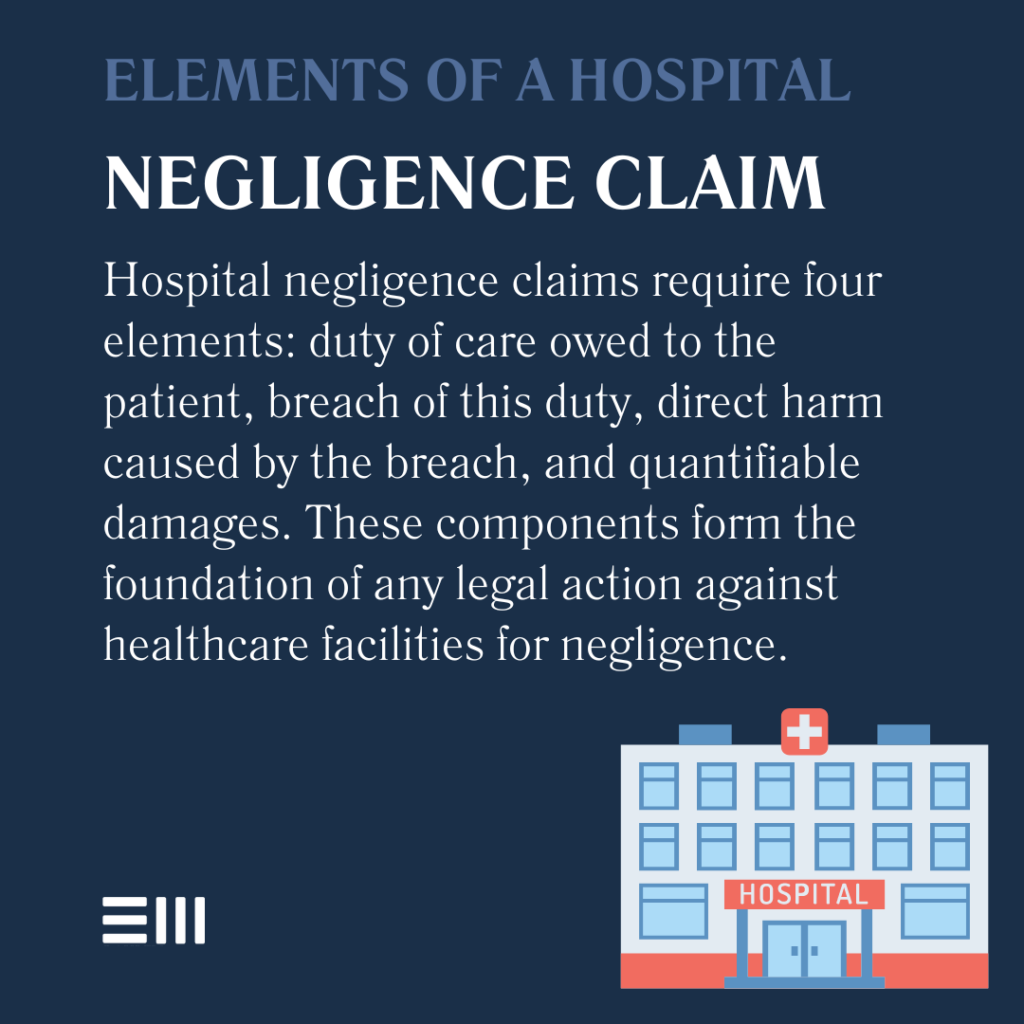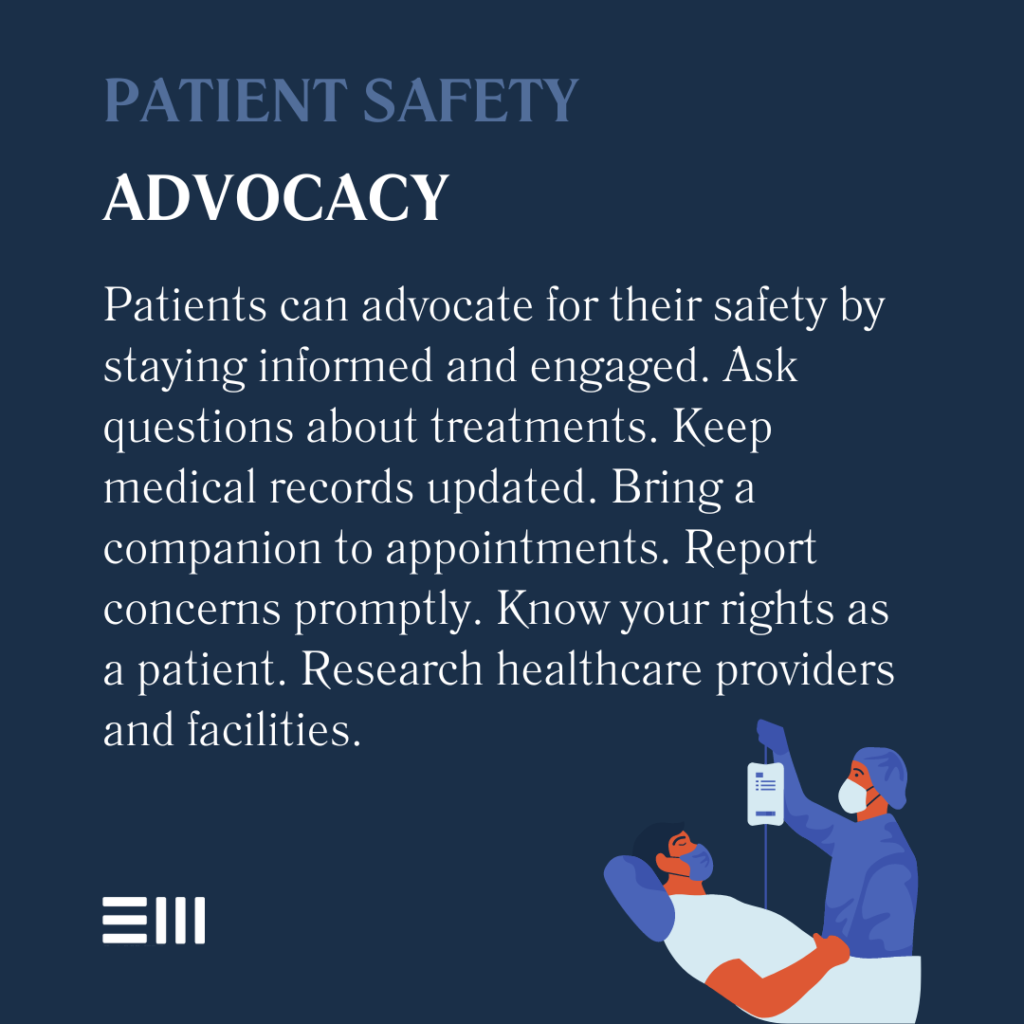
Medical errors are the third leading cause of death in the United States, claiming over 250,000 lives annually.
This chilling fact isn’t just a statistic—it’s a wake-up call. Every day, patients enter hospitals trusting in the care they’ll receive, unaware that they might be stepping into one of the riskiest environments in America.
From surgical mistakes to medication mix-ups, the spectrum of potential errors is as vast as it is terrifying.
But what happens when the system meant to heal us causes harm instead?
Understanding Hospital Negligence
Hospital negligence occurs when a healthcare facility or its staff fails to provide the standard of care expected in the medical profession, resulting in harm to patients.
This complex issue encompasses various aspects of healthcare delivery and can have far-reaching consequences for individuals and families.
What Constitutes Hospital Negligence
Hospital negligence can manifest in numerous ways, including:
- Misdiagnosis or delayed diagnosis;
- Surgical errors;
- Medication mistakes;
- Inadequate patient monitoring;
- Infections due to unsanitary conditions;
- Improper use of medical equipment;
- Failure to obtain informed consent; and
- Premature discharge of patients.
Understanding these forms of negligence is crucial for patients and their families to recognize potential issues and take appropriate action when necessary.
The Impact on Patient Safety
The consequences of hospital negligence can be devastating, ranging from minor complications to life-altering injuries or even death.
Patient safety is compromised when healthcare providers fail to adhere to established protocols and standards of care.
This negligence not only affects individual patients but also erodes trust in the healthcare system as a whole.
To address these concerns, hospitals and healthcare facilities must implement robust safety measures, continuous staff training, and effective communication protocols.
Patients and their families also play a vital role in ensuring safety by staying informed, asking questions, and actively participating in their care decisions.
Legal Aspects of Hospital Negligence Claims
When hospital negligence occurs, affected individuals may have grounds for legal action. Understanding the legal framework surrounding these claims is essential for those seeking justice and compensation.
Elements of a Hospital Negligence Claim
To successfully pursue a hospital negligence claim, the following elements must typically be established:
- Duty of care: The hospital owed a duty of care to the patient
- Breach of duty: The hospital failed to meet the standard of care
- Causation: The breach directly caused harm to the patient
- Damages: The patient suffered quantifiable harm or losses
Proving these elements often requires extensive medical knowledge and legal expertise, highlighting the importance of seeking professional guidance when considering legal action.

Statute of Limitations in Alabama
In Alabama, the statute of limitations for medical malpractice claims, including hospital negligence, is generally two years from the date of the injury or from when the injury should have been reasonably discovered.
However, there are exceptions and nuances to this rule, making it crucial to consult with a legal professional promptly if you suspect hospital negligence.
Types of Compensation Available
Victims of hospital negligence may be entitled to various forms of compensation, including:
- Medical expenses (past and future);
- Lost wages and loss of earning capacity;
- Pain and suffering;
- Emotional distress;
- Loss of enjoyment of life; and
- In cases of wrongful death, funeral expenses and loss of companionship.
The specific compensation available depends on the individual circumstances of each case and the extent of the damages incurred.
Frequently Asked Questions About Hospital Negligence in Alabama
Navigating the complex landscape of hospital negligence can be daunting, but understanding your rights and the legal process is crucial.
Here are some of the most common questions patients and families ask about hospital negligence in Alabama.
How Do I Know If I Have a Valid Hospital Negligence Claim?
Determining the validity of a hospital negligence claim involves assessing several factors:
- Was there a deviation from the standard of care?
- Did this deviation directly cause harm?
- Are there significant damages resulting from the negligence?
If you can answer “yes” to these questions, you may have a valid claim. However, hospital negligence cases are complex, and it’s advisable to consult with a legal professional who can evaluate the specifics of your situation.
What Evidence Is Needed to Support a Hospital Negligence Claim?
Gathering strong evidence is crucial for supporting a hospital negligence claim. Key types of evidence include:
- Medical records and documentation;
- Expert medical testimony;
- Witness statements;
- Photographic or video evidence (if applicable);
- Hospital policies and procedures; and
- Communication records between healthcare providers.
Collecting and preserving this evidence as soon as possible after the incident is essential for building a strong case.
Can I Sue a Hospital for Negligence if I Signed a Consent Form?
Signing a consent form does not waive your right to sue for negligence. These forms typically acknowledge that you understand the known risks of a procedure, but they do not protect healthcare providers from liability for negligent actions.
If the care provided falls below the accepted standard and causes harm, you may still have grounds for a claim, regardless of having signed a consent form.
What’s the Difference Between Hospital Negligence and Medical Malpractice?
While often used interchangeably, hospital negligence and medical malpractice have some distinctions:
- Hospital negligence: Focuses on the facility’s failures, such as inadequate policies, understaffing, or equipment issues
- Medical malpractice: Typically involves errors or negligence by individual healthcare providers
In many cases, a claim may involve elements of both hospital negligence and medical malpractice. Understanding these nuances is crucial for building an effective legal strategy.
The Role of Legal Representation in Hospital Negligence Cases
Navigating the complexities of a hospital negligence case can be challenging without proper legal guidance. Experienced attorneys specializing in medical malpractice and hospital negligence play a crucial role in these cases.
Benefits of Hiring a Specialized Attorney
Working with a lawyer who focuses on hospital negligence cases offers several advantages:
- In-depth understanding of medical and legal terminology;
- Access to a network of medical experts for case evaluation and testimony;
- Experience in negotiating with hospitals and insurance companies;
- Knowledge of relevant laws and precedents in Alabama;
- Ability to accurately value your claim based on similar cases; and
- Skills in presenting complex medical information to judges and juries.
These specialized skills can significantly impact the outcome of your case and ensure that your rights are fully protected throughout the legal process.

Protect Your Rights and Seek Justice
Have you or a loved one experienced harm due to hospital negligence in Alabama? Don’t face this challenging situation alone.
At Baxley Maniscalco, we understand the complexities of hospital negligence cases and are committed to fighting for your rights.
Our experienced team of legal professionals specializes in medical malpractice and hospital negligence claims.
We offer:
- Free initial consultations to evaluate your case;
- Personalized attention and support throughout the legal process;
- A proven track record of successful outcomes for our clients; and
- Extensive knowledge of Alabama’s healthcare and legal systems.
Don’t let time slip away—remember, there are time limits for filing hospital negligence claims in Alabama. Contact Baxley Maniscalco today to schedule your confidential consultation.
Can't find what you're looking for? Search our site below.










